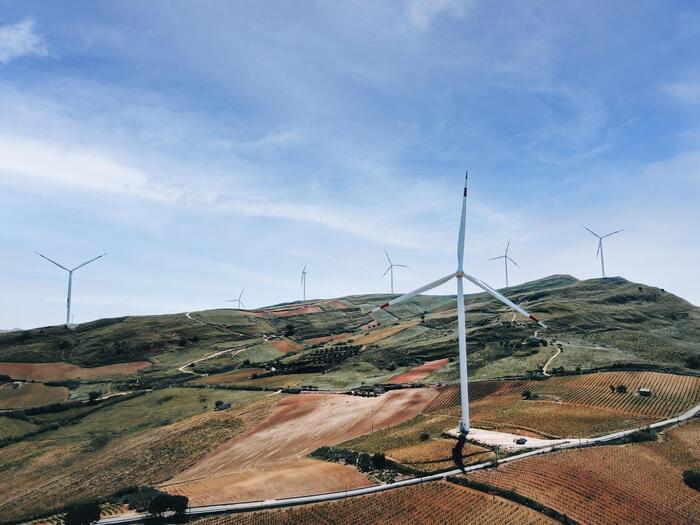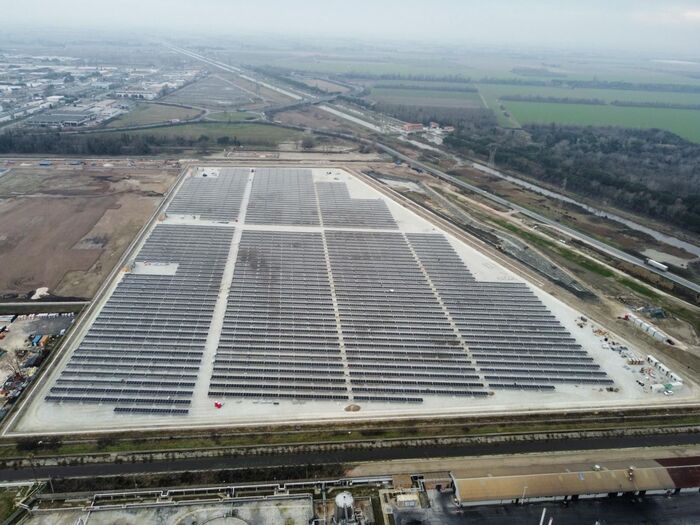Milestone, lighthouse project, simply brilliant: Germany's first agro-photovoltaic system in Althegnenberg is described in superlatives.
Now the project, which was conceived by a student, has been awarded the Bayernwerk energy prize.
Althegnenberg - generate electricity and operate agriculture at the same time - in this case even organic cultivation - is possible on the area near the railway line in Althegnenberg. The concept came up with Raphael Gaag, a student at the Vocational High School (BOS) Friedberg, as part of a project group led by teacher Thomas Rebitzer. However, the resourceful student was unable to take part in the awarding of the energy prize, of all places. At that moment he was writing an exam - fittingly in the subject of bio-physics.
Mother Elke Gaag and Rebitzer had come for him.
“The concept is brilliantly simple, simply brilliant,” said Rebitzer.
Photovoltaic modules were installed on the arable land of the owners Ludwig Neuner and Maria Widemann, at a distance of 13 meters.
"That is the necessary driving width for agriculture," explained Rebitzer.
The modules themselves are adjustable, which is innovative and forward-looking in two respects.
Modules follow the position of the sun
On the one hand, the modules follow the position of the sun, which, according to Rebitzer, increases the electricity yield by 15 to 30 percent.
On the other hand, the modules can also be placed vertically so that organic farmer Martin Gastl, who leased the area, has enough space to drive through with his agricultural vehicles and equipment.
So the solar field is at the same time a field on which grain;
Corn or potatoes can be grown.
And there are also two positive side effects: The solar modules cast shadows.
So the crops are not constantly exposed to the blazing sun.
That increases the yield.
And right under the modules, where farmer Gastl can't get to with his machines anyway, biotopes with various berries and other fruits are planted.
The district president of Upper Bavaria, Maria Els, sees innovations like this system as the "course that we need to create the energy transition".
Area cannot be increased at will, with the combination of electricity generation and agriculture one has a clear added value.
For them, the invention of the BOS project group is therefore a lighthouse project.
+
Attending the award were (from left) Markus Leczycki (Bayernwerk), Thomas Rebitzer (BOS Friedberg), Elke Gaag (mother of the BOS student who created the facility and was prevented from taking the exam), District President Maria Els, Mayor Rainer Spicker and Vice President - District Administrator Martina Drechlser.
© Private
Fürstenfeldbruck's deputy district administrator Martina Drechsler spoke of a milestone on the way to the goal of supplying the district exclusively with renewable energies.
“It works, you just have to do it.” Althegnenberg's mayor, Rainer Spicker, also sees only positive things in the facility: “We have to drive the energy transition, but not at the expense of agricultural land,” he said.
The agro-photovoltaic system is a good consensus.
The legislation
In order for this model to be implemented across the board, the requirements under the Renewable Energy Sources Act (EEG) would have to be changed, emphasized BOS teacher Thomas Rebitzer. Under the current legal framework, the construction of such plants is currently not attractive. Els took this suggestion with him. The Bayernwerk also took up Rebitzer's advice that the company should exercise its influence on legislation.
Because Markus Leczycki, head of municipal management at Bayernwerk, described the solution that the students found as absolutely exemplary.
"Politics and business alone will not manage the energy transition, we need the broad masses with such ideas." Bayernwerk awarded the project together with two others with the electricity producer's citizen energy award.
The project group around Gaag thus receives a third of the prize, which is endowed with 10,000 euros.
Also interesting:
Association of three districts: Energy agency is to replace Goal 21















